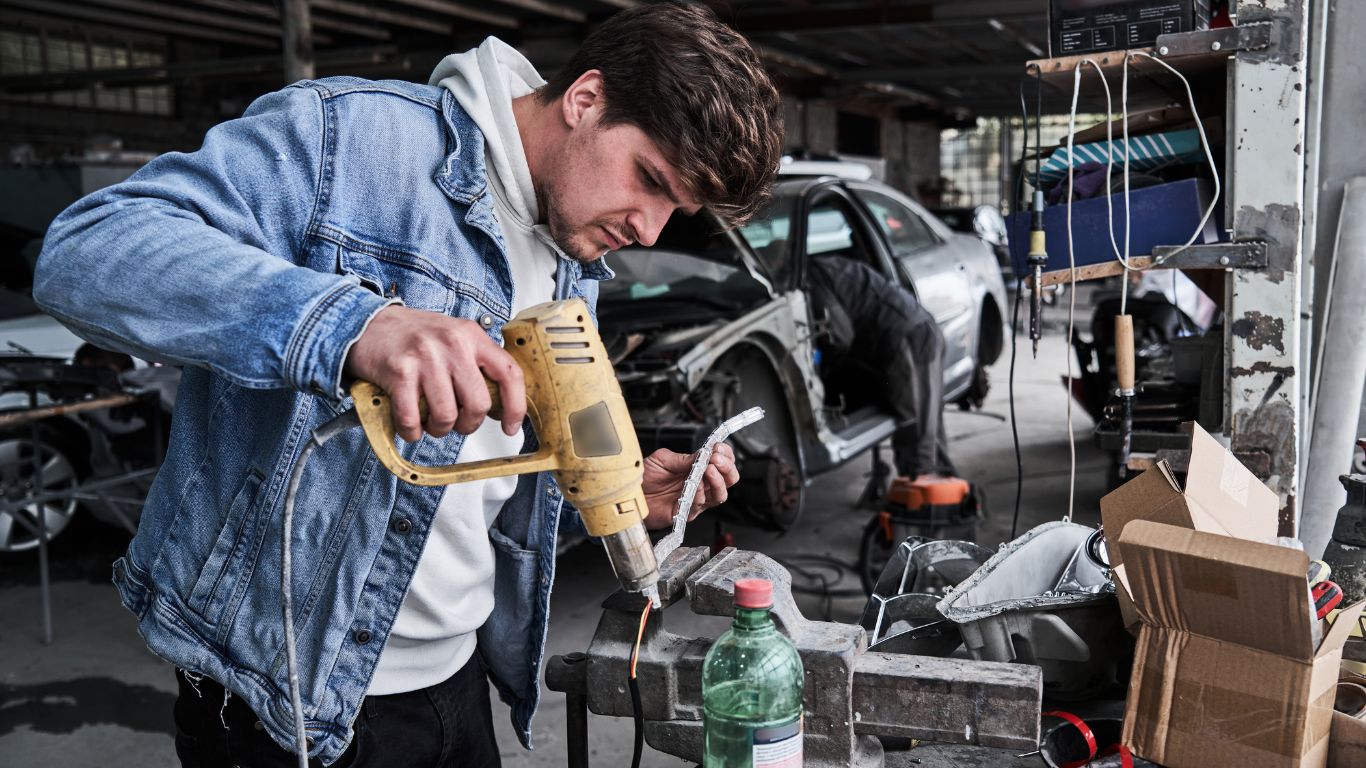If your vehicle has been in an accident and you’re looking to repair it, you may wonder if youcan i demand oem parts after accident (Original Equipment Manufacturer) parts instead of aftermarket ones. While many insurance companies offer cheaper aftermarket parts, OEM parts often provide better fit, durability, and performance. But can you insist on using OEM parts for your repair? This article explores whether you can demand OEM parts after an accident, the role insurance companies play in this decision, and how you can ensure that your car is repaired properly.
What OEM Parts vs. Aftermarket Parts
OEM parts are original components made by the vehicle manufacturer, ensuring a perfect fit and high-quality performance. They tend to be more expensive but offer superior durability and safety. In contrast, aftermarket parts are produced by third-party manufacturers, usually at a lower cost, but their quality and compatibility can vary, sometimes compromising vehicle performance.
What Are OEM Parts?
OEM parts are produced by the same manufacturer that made the original parts for your vehicle. They are designed specifically for your car model, ensuring a perfect fit and high-quality performance. These parts typically cost more than aftermarket parts but are often considered superior in terms of reliability and longevity.
What Are Aftermarket Parts?
Aftermarket parts are vehicle components made by third-party manufacturers, not the original vehicle maker. These parts are designed to fit a wide range of vehicles and are often less expensive than OEM parts. While many aftermarket parts can perform well, their quality, durability, and compatibility can vary. Some aftermarket parts may not meet the same safety and performance standards as OEM parts, which can affect your vehicle’s overall functionality and longevity.
Can I Demand OEM Parts After an Accident?
Yes, you can request OEM parts for your vehicle after an accident, but whether your insurance covers them depends on your policy. Some insurance companies prefer aftermarket parts to reduce repair costs, while others may agree to OEM parts if specified in your policy. It’s important to review your coverage, document your request, and communicate with both your insurance provider and repair shop to ensure the use of OEM parts.
Your Rights to Demand OEM Parts
In most cases, you can request OEM parts when your vehicle is repaired, but whether the insurance company will cover the cost depends on your policy and local regulations. Some insurance companies will automatically approve the use of OEM parts, while others may prefer aftermarket parts to reduce repair costs.
Role of Insurance in OEM Parts Approval
Insurance companies often push for aftermarket parts because they are less expensive. However, if your policy explicitly covers OEM parts or if you can prove that using aftermarket parts would affect the safety or value of your vehicle, you may be able to demand OEM parts. Always review your insurance policy and talk to your agent about your preferences.
How to Ensure OEM Parts Are Used in Your Vehicle Repair
To ensure your vehicle is repaired with OEM parts, start by clearly communicating your preference to both your insurance provider and repair shop. Request that OEM parts be used in writing and get a written estimate that outlines the cost. Be prepared to cover any additional costs if your insurance only covers aftermarket parts. Stay involved throughout the repair process to confirm that the OEM parts are being used as agreed.
Document Your Preference for OEM Parts
To ensure your vehicle is repaired with OEM parts, it’s crucial to document your preference in writing. Clearly state in your communication with the insurance provider and repair shop that you request OEM parts for the repairs. Request a written estimate that includes the cost of these parts and keep a record of all interactions. This documentation will help support your case if any issues arise during the repair process or insurance approval.
Understand the Cost Implications
When requesting OEM parts for your vehicle repair, it’s important to understand the potential cost differences. OEM parts tend to be more expensive than aftermarket parts, and your insurance may not cover the full price difference. Be prepared to pay the extra cost out of pocket if necessary. Review your insurance policy to determine coverage options and discuss any financial implications with your insurance provider to avoid unexpected expenses during the repair process.
Get an Estimate in Writing
Before any repair work begins, always request a written estimate that outlines the use of OEM parts. This estimate should include a detailed breakdown of the parts and labor costs. Having it in writing ensures transparency and provides you with a reference point in case of discrepancies. It also helps you understand the full financial scope of the repair, including any additional charges that might arise from using OEM parts instead of aftermarket ones.
FAQs
Q: Can my insurance deny my request for OEM parts after an accident?
A: Yes, insurance companies may deny your request for OEM parts if your policy only covers aftermarket parts. However, if you have comprehensive coverage or specific endorsements, you may be able to argue for the use of OEM parts.
Q: Are OEM parts always better than aftermarket parts?
A: While OEM parts are generally of higher quality and designed specifically for your vehicle, some aftermarket parts can perform just as well, especially if they’re from reputable manufacturers.
Q: How much more expensive are OEM parts compared to aftermarket parts?
A: OEM parts can cost anywhere from 20% to 60% more than aftermarket parts, depending on the make and model of your vehicle.
Q: Can I choose aftermarket parts if I prefer them over OEM?
A: Yes, you can opt for aftermarket parts, and many insurance companies will cover these repairs. It’s important to make sure that aftermarket parts meet the safety and performance standards of OEM parts.
Q: Will using aftermarket parts affect my vehicle’s warranty?
A: In most cases, using aftermarket parts won’t void your warranty, but it’s important to verify this with your vehicle’s manufacturer to avoid potential issues.
Conclusion
While you can request OEM parts after an accident, the final decision depends on several factors, including your insurance policy, the severity of the damage, and the insurance company’s stance on repairs. To ensure your car is repaired with the highest-quality parts, it’s essential to understand your rights, discuss your preferences with your insurance provider, and get written estimates from your repair shop. Remember, OEM parts offer superior quality and safety but may come at a higher cost. Weighing these factors will help you make an informed decision about how to proceed with your vehicle repairs.


